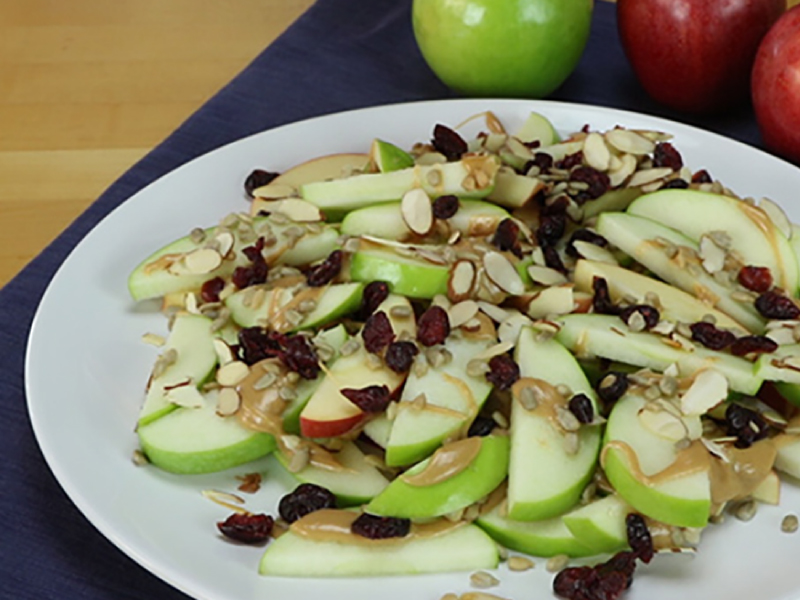A sweet Super Bowl treat that won't sack your health
By American Heart Association News

Nachos are as much a part of the Super Bowl tradition as sports channel hype and over-the-top halftime shows. Unfortunately, traditional cheese-goo-on-fried-chips nachos are a totally blown call nutritionally.
So, as you make plans for the big game, consider apple nachos – a sweet, vegan alternative that won't blitz your health.
"There are so many things to love about this recipe, which gives you plant-based protein, fiber and heart-healthy fats," said Deanne Kelleher, a registered dietitian and academic specialist at Michigan State University in East Lansing.
The recipe has sunflower seeds, almonds and peanut butter, all of which contain potassium. "Potassium helps with your blood pressure and muscles and your overall health, and we don't get enough of it in our diet," she said.
Apples – the main ingredient – keep the doctor away, as the old saying goes.
"Having whole fruit, including the skin, is so much better than fruit juice. It provides complex carbs and fiber, which helps us feel full and gives us a more even blood sugar throughout the day," Kelleher said.
Aside from a tiny amount of honey, the recipe punts any added sugar, which has zero nutrients but lots of extra calories.
"People already have too much added sugar every day," she said. "Added sugar isn't necessary in this recipe. The fruit itself is naturally sweet."
If you have questions or comments about this story, please email [email protected].





